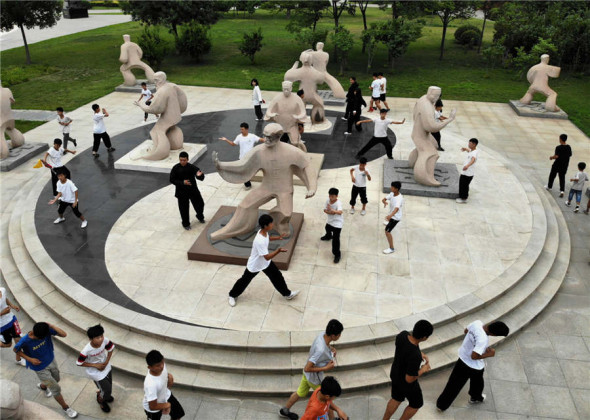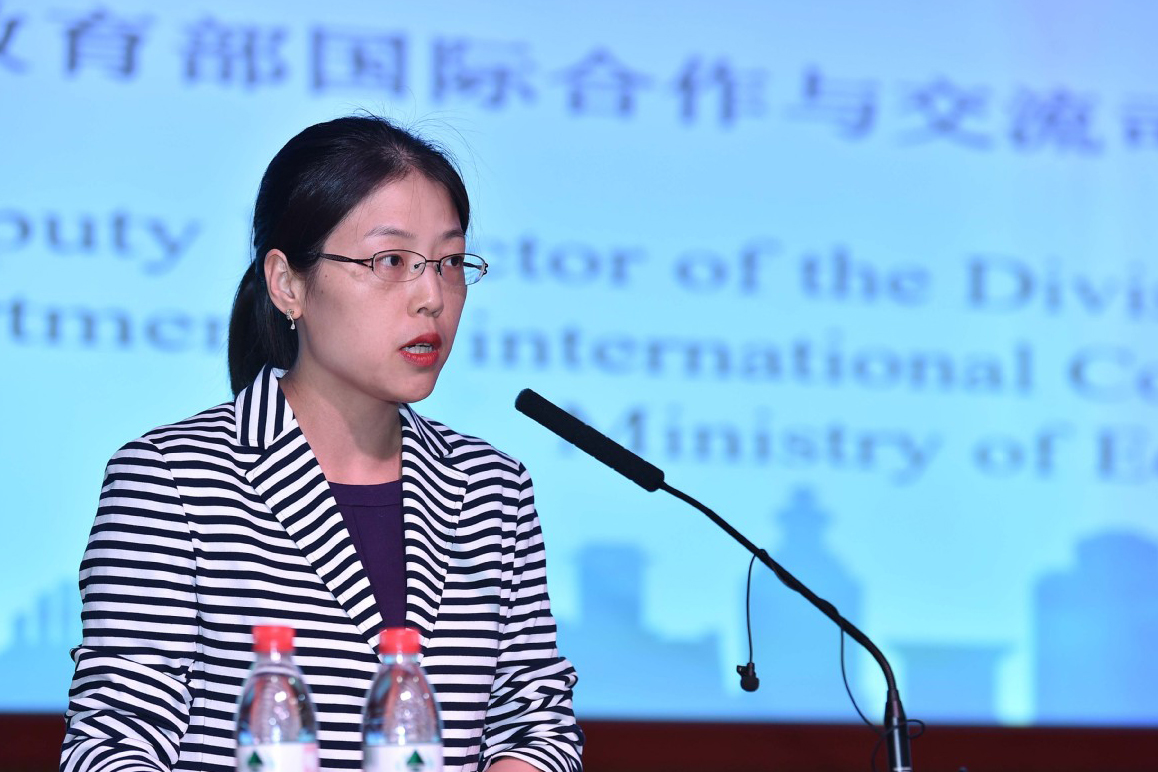2020/12/16 11:15 BUSINESS
Shanghai Middle School Teachers Top Global Survey in Class E

Junior high school teachers encourage their students before they take Shanghai's senior high school entrance exam last year. [For China Daily]
Middle school teachers in Shanghai are ranked among the best in the world for classroom teaching efficiency, according to a global survey.
The Teaching and Learning International Survey report, released on Wednesday, was conducted from 2013 to 2018 by the Organization for Economic Cooperation and Development. It surveyed over 240,000 middle school teachers and school leaders in 48 countries worldwide, to make international comparisons and help develop and implement policies.
The study is believed to be the largest international survey concerning teachers and school leaders' working conditions and learning environments.
Shanghai was the only Chinese region involved in the survey. Around 4,200 junior high school teachers and principals from 200 schools were selected to participate, according to Zhang Minxuan, who was responsible for the project in Shanghai.
"The selected middle schools are at various levels and are different kinds from 16 districts, which in turn helped the survey give a well-rounded picture of the teaching situation in the city," said Zhang, who is also director of the Research Institute of International and Comparative Education at Shanghai Normal University.
The survey showed that Shanghai middle school teachers spent an average of nine hours on work every day, with a weekly average working time of 45.3 hours.
Shanghai teachers spent a much higher number of hours on class planning and preparation, communication with colleagues, grading assignments, tutoring students and professional development than the survey average. The survey found that Shanghai is one of the regions with the highest teaching efficiency. Shanghai teachers spend an average of 85.4 percent of class time on teaching activities, compared to the survey average of 78.1 percent.
However, Zhou Bin, dean of the college of teacher education at East China Normal University, noted that "it is a survey, not a competition or test, which means a higher percentage is not necessarily equal to better performance".
"Authorities and practitioners in the industry should carefully analyze the real facts behind the data which may reveal the advantages and, what's more important, the potential disadvantages of teaching in the city that can be further improved."
Zhou said that educators should be aware that if Chinese teachers spend too much time on teaching, they may ignore the importance of the involvement of students who should be encouraged to communicate and think independently.
Zhou's concern seems to be backed up by another survey result which showed that only 20 percent of teachers in Shanghai regularly give students assignments involving independent and critical thinking, compared with the OECD average of 28.6 percent.
With regard to teaching methods, over half the surveyed teachers reported they assigned homework that can be done via the internet or other technology. By contrast, the figure in Shanghai was only 24.3 percent.
"The comparative data demonstrates that Shanghai teachers need to empower themselves to rapidly master the ability of applying advanced technology to the teaching process," said Zhou.
"Electronic goods can be toys for entertainment for children, but they can also act as a tool for effective and convenient learning, intellectual development, and knowledge acquirement," he added.
The survey showed that teaching was the first choice of vocation for 86.6 percent of Shanghai teachers, far exceeding the average of 66.5 percent.
The average age of junior high school teachers in Shanghai is 39.4 years, 4.7 years younger than the average across the OECD countries. Shanghai middle school teachers said they have been teaching for 16.7 years on average.
Zhang said schools, governments and the community should work together to ease the pressure on teachers, boost their sense of belonging and work satisfaction, in order to attract more talented people to the teaching industry. He said this would help increase Chinese global competitiveness.
(Source: China Daily)
Explore further









